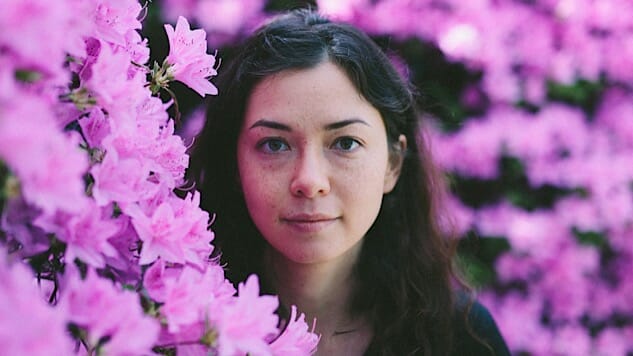Renata Zeiguer: The Best of What’s Next
After years of playing supporting roles for other artists, the New York singer-songrwriter is stepping out with one of 2018's most promising albums.
Photo: Chris Weiss
Brooklyn singer Renata Zeiguer is not much for self-congratulation, even though she would be entitled to brag for days about having recorded Old Ghost, a quiet stunner of an album—full of catchy, well-constructed indie-pop songs that are more complex than they seem. Then again, when you’re as intuitive a songwriter and musician as Zeiguer is, there’s no need to talk yourself up.
“She’s not looking for attention, she’s just quietly doing amazing stuff in the background,” says her friend Juan Pieczanski of the band Small Black, who has known Zeiguer for the better part of a decade. “You almost have to seek it from her.”
Zeiguer’s songs “embody a time in my life when I was becoming truly self-aware and sorting things out and saying, ‘I want to do something about it.’ It’s not fun to be a sulking child inside.”
Zeiguer is certainly sought-after. Old Ghost is her first full-length release, following a 2013 EP, a handful of singles and a lot of contributions to other people’s records. She has sung and played violin or keyboards on albums by artists including Ava Luna, Landlady, Quilt, Mr Twin Sister and ex-Beach Fossils member Christopher Burke. Though Zeiguer (rhymes with “tiger”) has been playing piano and violin since she was 6, songwriting is a more recent pursuit that began when she was assigned to write and record a tune for a class assignment at New York University. She’s been writing ever since.
“I guess I had some stories to tell,” Zeiguer says.
The stories on Old Ghost, which comes out Friday via Northern Spy Records, are in many ways autobiographical. Zeiguer, 29, wrote the nine tunes over a two-year stretch as she worked to shed lingering adolescent angst, deal with social anxiety and find ways to express the anger she feels as a woman becoming more conscious of the sexism and hypocrisy all around her. “They all embody a time in my life when I was becoming truly self-aware and sorting things out and saying, ‘I want to do something about it,’” she says. “It’s not fun to be a sulking child inside.”
-

-

-

-

-

-

-

-

-

-

-

-

-

-

-

-

-

-

-

-

-

-

-

-

-

-

-

-

-

-

-

-

-

-

-

-

-

-

-

-









































